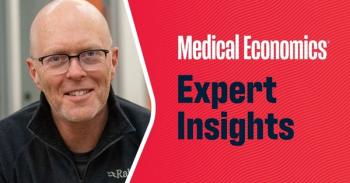
Some older adults have to choose between health care and food
Two-thirds of Americans 50-plus see health care as at least a minor financial burden
A
For a small percentage, this means
Those 65 and older spend nearly twice as much of their total expenditures on health care costs when compared with the general population, even with 94% in this age group being covered by
The
Paying for healthcare requires tough choices for a sizable minority of Americans aged 65 and older. Nearly two in three adults in this age group indicate that health care costs are a major (15%) or a minor (51%) financial burden, according to the report. These costs are also associated with stress, which can make health issues even worse: Over four in 10 adults aged 65+ (42%) report that health care costs cause stress in their daily lives.
Some of these changes are recent. The report stated that in the past year, about one in four adults 65 or older cut back on at least one basic need to pay for health care. This includes 9% who reduced spending on food, 13% who decreased spending on OTC drugs, 6% who cut back on utilities, and 19% on clothing.
Those in the 50-64 age group face even more hardship. Three in 10 in this age group forgo at least one basic need to cover the costs of care. Specifically, 14% reduce spending on food, 15% cut back on over-the-counter drugs, and 26% buy less clothing. Similar to the situation for adults aged 65 and older, 8% of those aged 50-64 reduce spending on utilities to pay for health care.
Black Americans aged 50-64 are more likely than White Americans to report forgoing at least one basic need asked about in the survey (38% to 29%, respectively). Black Americans aged 50-64 are more than twice as likely as White Americans to say they cut back on utilities (15% vs. 7%). Black adults in this age group are also more likely than White adults to have reduced spending on clothing (31% vs. 24%) and over-the-counter drugs (19% vs. 13%).
With adults aged 50-64 already sacrificing to a greater degree than their older counterparts, there will certainly be many older adults needing medical care because of the health outcomes of delaying or skipping treatment, according to the report.
The study concludes that policymakers urgently need to grapple with how to improve efficiency and reduce costs of health care and prescription drugs in the United States, so Americans do not need to sacrifice basic needs to pay for healthcare or medicine -- or to avoid care entirely because it is too expensive.
Newsletter
Stay informed and empowered with Medical Economics enewsletter, delivering expert insights, financial strategies, practice management tips and technology trends — tailored for today’s physicians.






